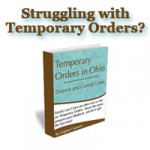Virginia Cornwell is a Columbus Ohio Fathers Attorney and Family Law Attorney.
On July 17, 2010, the Cleveland Plain Dealer published an editorial entitled: Visitation Rights Must Be Enforced. The editorial was a resounding call to action to courts to enforce visitation once it is awarded, and to facilitate mediation early in divorce cases, and to give the parties incentive to reach an agreement early in the case.
Whether it is awarded in a divorce case, to parents who were never married, or to grandparents, visitation is a right. It should be enforced as a right. Ohio courts routinely hand out jail sentences for unpaid child support, but jail sentences for denying visitation is far more rare. In both cases the Court is charged with enforcing its order and looking after the welfare of the children, but support and visitation contempt cases seem to receive very disparate treatment when brought before the courts.
It is true that payment of support is much more of a black and white issue than denial of companionship or parenting time. With child support, either the money was paid through the agency or it wasn’t, and it’s very easy to document whether the payment occurred. With visitation however, it is sometimes as clear as mud whether the parties followed the Court’s order. Sometimes, there are legitimate obstacles to exchanging the Child, and court orders often anticipate those obstacles. Unfortunately, legitimate obstacles are sometimes falsified to deny visitation and attempt to escape contempt.
Although Ohio courts clearly have the authority to impose jail time for denial of visitation, it is not exercised as often as it is for non-payment of support. It is this writer’s opinion that jail time is routinely imposed for non-payment of support because IT WORKS. People who were unable or unwilling to obey the Court’s order before often become able and willing to do so when they are facing the real possibility of going to jail. Perhaps more parents and more attorneys / lawyers should request jail time be ordered by the Court when a parent is found in contempt of a visitation order. Denying access to the Child can be part of a long term pattern of parental alienation that is never in the best interest of the Child.

